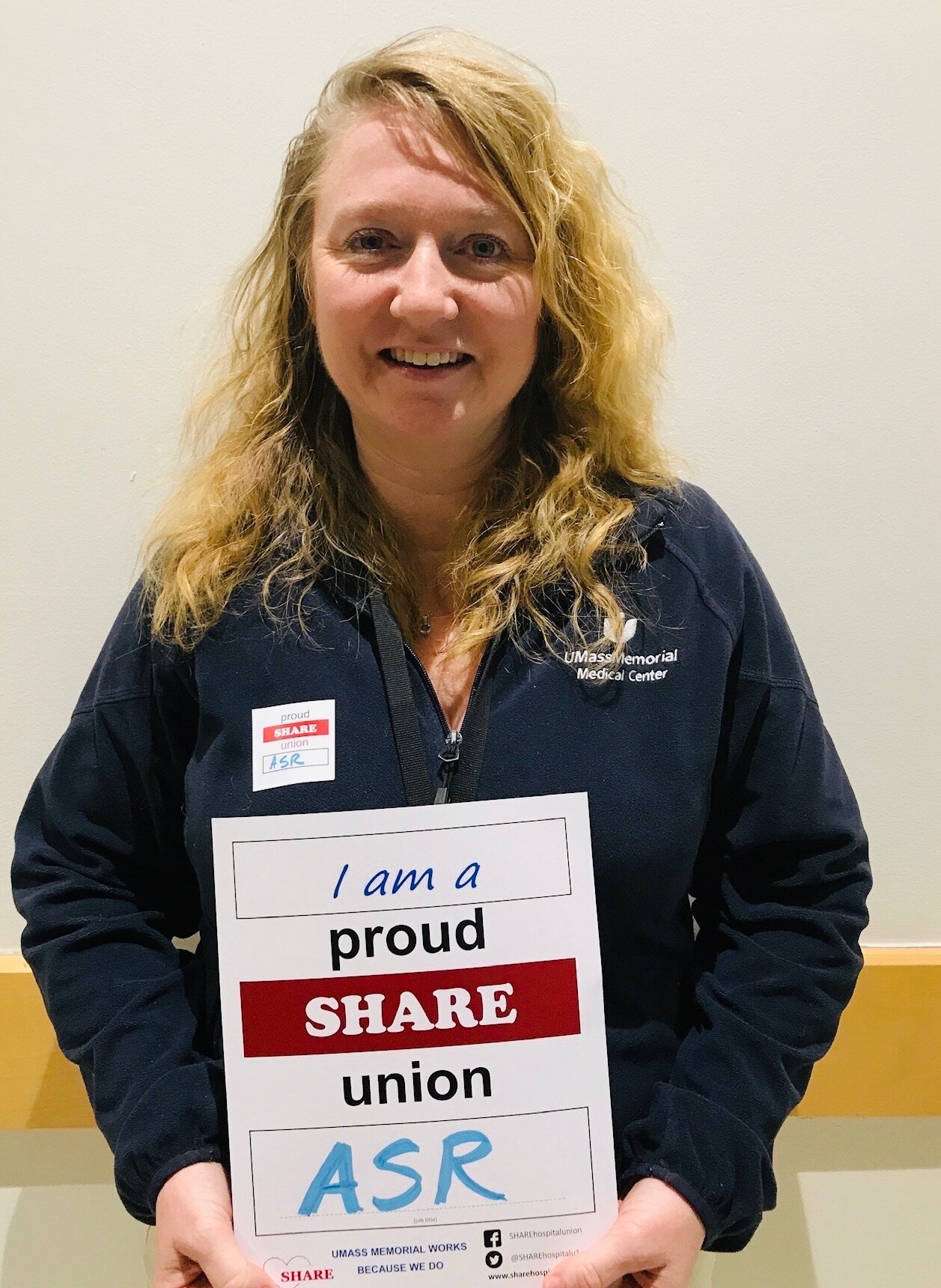Dianne Degon
Access Services Representative, University Campus Radiology, 5/29/20
Dianne Degon has helped keep things running in our hospital’s Radiology Department for over 20 years. But she’s also a real expert when it comes to childcare, and moved quickly to make sense of the Massachusetts Emergency Childcare system when the COVID crisis began. Below, Dianne describes her experience with work and family during the peak of the coronavirus.
I’m good . . . doing even better than I would have expected. I have been a foster mother for over 30 years and have four adopted children at home: they’re 11, 13, 14, and 16, and two older children: 25 and 26. I’ve got only one foster right now; he’s seven months old. I met him when he was a one-month old from the NICU.
While I’m at work, my foster child is in the state’s Emergency Child Care. That program has really worked well for me. Emergency Child Care is different from regular daycare, it covers the hours that you work, and it’s only if you really need it. They look to see if you have anyone else, a spouse or someone else living in your home, who can watch the kids. If you have other options, you don’t qualify. Fees are covered during Emergency Child Care.
The child care centers get donations and supplies from the state, so they’ve got what they need, like cleaning supplies and hand sanitizer. Daycare providers are required to wear masks and we are required to hand the child at the door and not walk into the home. Parents are required to wear masks dropping off and picking up, but masks won’t apply to little kids, under two, though. Providers are also required to keep 6 feet between kids for social distancing.
You can go to the EEC website to find the application and search for the emergency childcare providers. You can search by address, or zip code, or town. The hours vary from place to place, and you can find that information online. I was lucky and discovered an in-home provider near me. She’s only taking care of one other kid right now. I’d used her before, so I already knew how good she was, but you can interview first.
My workdays go really fast. Telehealth is really picking up. We get lots of calls. Our team is doing well, working well with the docs in our area. Since I’m on-site, I’m transferring calls to whichever Nuclear Medicine scheduler is on for the day and also putting in the faxes in for them. The first two weeks [of the pandemic] we were working relatively slowly, but we’ve got the new process down now, and things are smoother, and we’re scheduling faster.
Often when we schedule something, we have to re-schedule the procedure for a couple weeks later due to the precautions with the virus . . . and we just hope that it doesn’t happen again, that we don’t have to schedule out even further. Thankfully, the patients are really understanding and nice about it.
My older kids are home. They have to get all of their chores and schoolwork done while I’m at work. We have a couple of staff who come to the house regularly to provide ABA support. They’ve been really helpful. Thankfully that’s an essential service, and has continued through the shutdown. The kids are all responsible to email their teachers right before I get home, so I get a response from each of their teachers. I set that up that system as soon as the schools were out, so it’s become a good routine.
Actually, the thing I’m most nervous about is things re-opening, the kids going back to school. Right now, we don’t have the usual trips across town for appointments in the evening, none of the usual sports teams. No rushing to get fast food. We’re eating all homemade meals and then enjoying our together-time in the evenings. The girls are making dinner every night. We can all sit down together to watch TV. It’s been a surprising upside. When things get more back to normal, I’ll definitely want to preserve some of the special habits we've started now.
***
In this past article from the Telegram & Gazette, you can read about Dianne's experience having fostered over fifty children!

